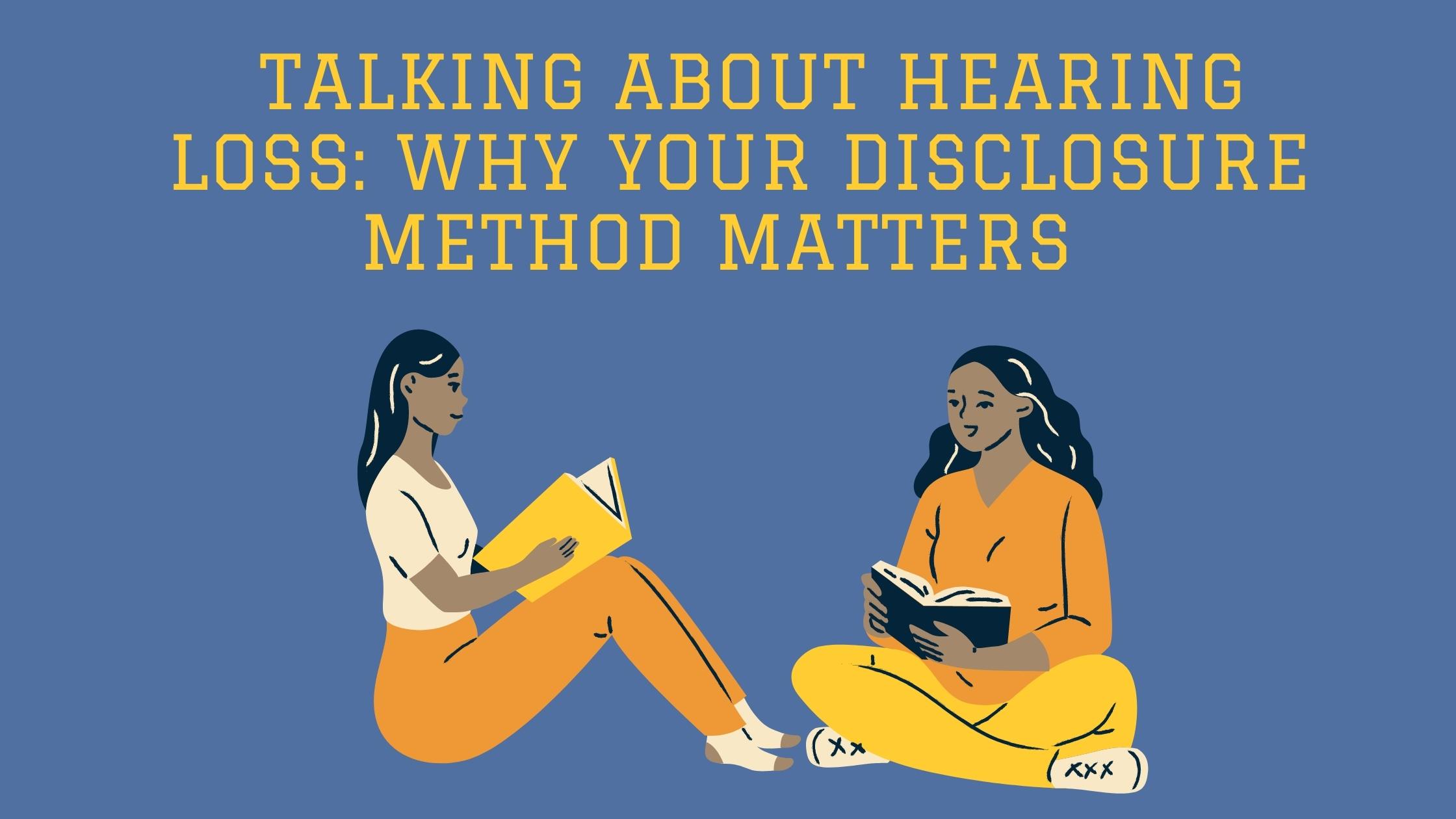Those who have hearing loss require an accommodation to be able to communicate with others. And yet, many people find it difficult to get the help they need. Not only is it important to disclose hearing loss, but it also matters how you do so. Trying to get by on your own without closing others into your condition is the worst option indeed. And yet, if you don’t disclose your hearing loss in a way that leads to assistance, then you can still end up in a situation that makes communication difficult. Communication specialists have come up with a framework for three types of disclosure that people commonly use to talk about their hearing loss. Let’s take a look at each of these in an attempt to understand the best way to get help with communication in the long run.
Non-Disclosure
The first way to talk about hearing loss avoids disclosure altogether. Rather than explaining to someone that you have hearing loss, this approach jumps straight to a request for accommodation. Rather than explaining to someone that you have an ongoing condition of hearing loss, this approach can make it seem like the circumstances are to blame for your inability to hear. For instance, you might simply ask others to repeat themselves or to speak up. These requests can help you get what you need in the short run of a single conversation, but they do nothing for subsequent conversations with the same person. The next time you are trying to communicate with that person, you will be starting all over again in the attempt to hear what they have to say.
Basic Disclosure
Another way to approach the topic of hearing loss is to simply admit to others that you have hearing loss. This direct disclosure lets others know that your condition is not simply circumstantial or due to a loud environment. By telling others about hearing loss, you are explaining that your struggle to communicate is not a one-time thing. The next time you get together, they can recall that you have hearing loss and keep that in mind. However, they remain unable to accommodate your needs without serious guesswork. Without explaining what can be done to accommodate your hearing loss, this approach can leave others in the dark, leading to ongoing confusion in your next interaction.
Multi-Purpose Disclosure
The best way to talk about hearing loss is to use a multi-purpose disclosure method. The first step is to tell others that you have hearing loss. Just like a basic disclosure, your admission can make it possible for others to remember your hearing loss the next time you interact. The next step, though, is to ask for accommodation. In much the same way a non-disclosure might do, you can ask for a simple fix to make conversation easier.
Some people might request others to speak more loudly, while others will want them to come closer. Still, others know that they have asymmetrical hearing loss and will want others to come closer to their “good ear.” These requests for accommodation pick up where basic disclosure leaves off. Not only can a person recall that you have hearing loss in your next interaction, but they also make it possible to know what is necessary to make communication flow smoothly.
Seeking Treatment for Hearing Loss
Though these disclosure methods can go a long way toward helping others understand what they can do to help you, they are not a permanent fix. Many forms of hearing loss can get worse with time, and no accommodation strategy will work in all contexts. If you have untreated hearing loss, the best thing you can do to improve your communication ability is to seek out a hearing test. This diagnosis will point your hearing health professional toward the right type of treatment to meet your needs.
When you communicate with hearing aids in place, the process of a face-to-face conversation can be much easier, even without disclosure of hearing loss. Though multi-purpose disclosure remains a useful way to approach your needs, the benefits of treatment extend far beyond communication ability. Don’t put off making an appointment for your hearing test any longer!

